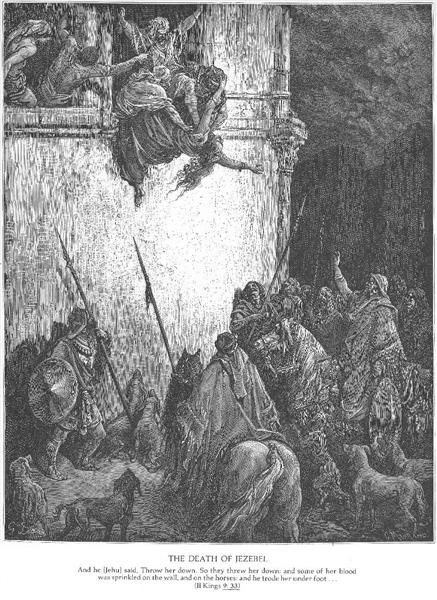Death of Jezebel by Gustave Doré, 2 Kings 9:30-37, Bible.Gallery
Artwork Description

Elijah's primary adversary was King Ahab, a ruler who not only perpetuated calf-worship in Israel but also surpassed his predecessors in wrongdoing by introducing Baal and Ashtoreth, Phoenician deities, in place of Jehovah. This calculated act of apostasy was heavily influenced, if not instigated, by his wife, Jezebel, a Tyrian princess who played a role akin to Clytemnestra's relationship with Aegisthus or Lady Macbeth's association with her husband. While Ahab still harbored some remnants of conscience and had a will weakened by conflicting desires, Jezebel was resolute and ruthless. She mocked her husband's feebleness and showed no qualms about perjury or murder to achieve her goals.
However, the turning point came when she orchestrated the unjust acquisition of Naboth's vineyard for Ahab. It was at this moment that a prophetic declaration was made, stating, "The dogs shall eat Jezebel by the wall of Jezreel." While it appeared to be an unlikely fulfillment, the prophecy eventually found its realization. When Jehu, after eliminating her son, approached Jezreel and was addressed by the queen-mother from one of the palace's windows, he commanded her attendants to throw her down. Their obedience is vividly depicted in the dynamic illustration. Jezebel was cast out, trampled under the horses' hooves, and ultimately torn apart by the wild dogs, which are visible at the bottom of the image, eagerly awaiting the opportunity to rend her into pieces. Thus, a daring and morally corrupt woman met a dreadful yet just conclusion to her life.